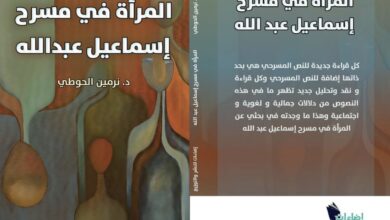Screened on Tuesday 27 April, part of Egypt’s 16th National Film Festival in Cairo, “Rabei’ 89” (Spring 89, 2009), the award-winning film was one of many short-films that were gathered for an early morning show.
To watch the short feature “Rabei’ 89” is to willingly allow yourself a visit to the tender imaginary world that two teenage girls create. That world is paved with flowers and its sky is made of childish love dreams that might shatter if touched. The film takes grant you a glimpse into that world and manages to explore all the emotions of this struggling age.
The movie relives the missing pages of a diary written by Camellia, a girl who lived her teenage years in the Helwan suburb back in the 80s. Camellia is listening to her best friend Sarah as she tells her the entertaining, and sexually revealing, details of Sarah’s love affair with their young neighbor Yehia. In an act of jealousy, Camellia manages to steal the boyfriend from the arms of Sarah and explores love and desire with the young man. Camellia faces the guilt of betraying her best friend and debates telling her the truth, but what she does not know is that Sarah never dated Yehia and that all the love stories she told are merely lies.
“The script captured me when I read it,” says director Ayten Amin. “Wessam Suleiman wrote this script years ago and she picked the late 80s as a background for her story. I delivered it on the screen with few changes except the usual cuts a director adds to the script,” Amin says. The script indeed was captivating; telling the story of its characters in a genuine style with poetic narration that takes the viewer into the hearts of both girls through spying on their private diaries.
Indeed, the director delivers the film with sincerity and an obvious understanding of both main characters. Small details and secondary storylines are well placed in the plot of the film, which is enhanced by the rendition of the theme, adding the right rhythm to the film as a whole. The script won the Jury Special Award in the Alexandria Film Festival last year.
The location and placement of the story evokes a proper tone for the story as a whole. “I shot most of the film in Helwan, where we needed to rearrange some of the locations, but the houses were the right choice given the 80s atmosphere,” she explained. The director clearly did her research to pick the right historical elements to integrate into the film. Old fashion Amr Diab and Ali el-Haggar songs were used in the soundtrack and Rambo III, starring Sylvester Stallone, was played in the movie theater scene, all of which emphasized the nostalgic flair.
The acting in the film was one of its most powerful elements. Salma Saeed and Fatemah Adel, who play the two main characters, have a strong understanding of the changes both their characters are going through. They both evolve with the storyline throughout the film and manage to capture the audience’s attention, with each of them managing to present their feelings towards the same man in a different way. “Salma did not act before.” Amin added. Fatemah, on the other hand, did some different projects before and has an aspiring career in the theater scene Fatemah is no stranger to the independent film industry having performed a memorable role in the 2008 independent Egyptian film “Basra.”
Finally, although Amin is not working on anything new at the moment, she already left a mark on the short film industry in Egypt. This film won her multiple awards including Best Short Feature Award in the Free Image Festival held at Garden City Cinema Palace earlier this month and also received a special mention from the Middle East International Film Festival in Abu Dhabi in 2009. Her first short feature film, “Ragelha” (Her Man), which was her graduation project from the Art Lab of the American University of Cairo, generated some buzz back in 2007 due to its unconventional theme and thought-provoking storyline and was screened in 10 different film festivals around the globe.




